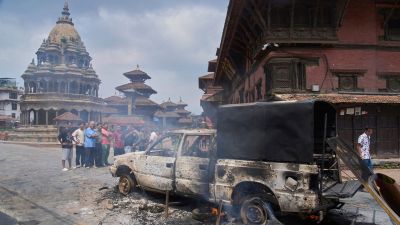Ritu Sarin is Executive Editor (News and Investigations) at The Indian Express group. Her areas of specialisation include internal security, money laundering and corruption. Sarin is one of India’s most renowned reporters and has a career in journalism of over four decades. She is a member of the International Consortium of Investigative Journalists (ICIJ) since 1999 and since early 2023, a member of its Board of Directors. She has also been a founder member of the ICIJ Network Committee (INC). She has, to begin with, alone, and later led teams which have worked on ICIJ’s Offshore Leaks, Swiss Leaks, the Pulitzer Prize winning Panama Papers, Paradise Papers, Implant Files, Fincen Files, Pandora Papers, the Uber Files and Deforestation Inc. She has conducted investigative journalism workshops and addressed investigative journalism conferences with a specialisation on collaborative journalism in several countries. ... Read More
Aluminium industry rides on RSS journals to reach Govt
If you’re desperately trying to get the Government’s attention but don’t know how, what do you do? What if your advertisement...

If you’re desperately trying to get the Government’s attention but don’t know how, what do you do? What if your advertisements in the top newspapers haven’t worked the trick? Simple: you go to those papers you know the top leaders in the government read carefully.
So, on the inside back covers of the recent issues of RSS journals Organiser and Panchjanya, you find an advertisement with ‘‘startling revelations’’ about an aluminium ‘‘scam’’.
‘‘We cannot remain a silent spectator and continue to suffer the onslaught of the Government, which under intoxication has no concern for the poor,’’ reads the ad. Similar ads appeared in Goa newspapers when the BJP’s executive meeting was on, and were front-paged in national dailies.
The campaign has been financed by little-known unions of aluminium manufacturers and fabricators, who say they have been warning for years about the slow death of their industry; finally, they had to advertise in the RSS journals.
H. Shankar, president of the Secondary Manufacturers’ Union, says: ‘‘Even a mother does not give milk to a baby unless it cries. This was the only way to make the Government take notice.’’
As it happens, the ‘‘scam’’ isn’t as much a scam as criticism of Government policy and of price protection given to the primary aluminium manufacturers. Santosh Patni, secretary of the Aluminium Fabricators Union — which has released some of the advertisements — says India has the lowest cost of production of aluminium in the world, the fifth largest bauxite reserves but the highest domestic price.
‘‘The Government is protecting primary producers — Hindalco, a Birla company, and Nalco, a PSU. These companies are exporting aluminium though there isn’t enough for domestic use. It is only the secondary producers and fabricators who are in distress,’’ he complains.
The unions want the Government to abolish the 20.4-per cent customs duty on aluminium, which was reduced only by 10 per cent in the last Budget. This duty was the highest in the world and, as one memorandum charges, ‘‘the domestic price of aluminium has been hiked with manipulation by the primary producers by about Rs 15,000 per tonne. With the country’s production of over 6 lakh tons per annum, the amount involved in the scam could be to the tune of Rs 900 crore annually. This has been continuing for at least four years which means that this scam may have already touched Rs 2,800 crore.’’
Union Mines Minister Ram Vilas Paswan (speaking before his resignation on Monday) said that in pre-budget discussions he had asked for a gradual reduction of customs duty over a three to four year period. ‘‘It is up to the Ministry of Finance to make the final decisions. Since there was a equal 10 per cent reduction in customs duty for the primary, secondary and scrap sectors, it is the scrap dealers who are now angry,’’ he conceded.
The ads seemed to have provoked some response — Paswan said ministry officials examined the issue — but perhaps not what the unions were looking for.
The secondary manufacturers say manufacturers were now finding it cheaper to set up units in Nepal and Sri Lanka, with whom India has Free Trade Agreements and where no customs duty or income tax is levied. Mangal Sain, who owns an outlet in Delhi, says that he too is proposing to set up shop in Sri Lanka.
Photos



- 01
- 02
- 03
- 04
- 05




























